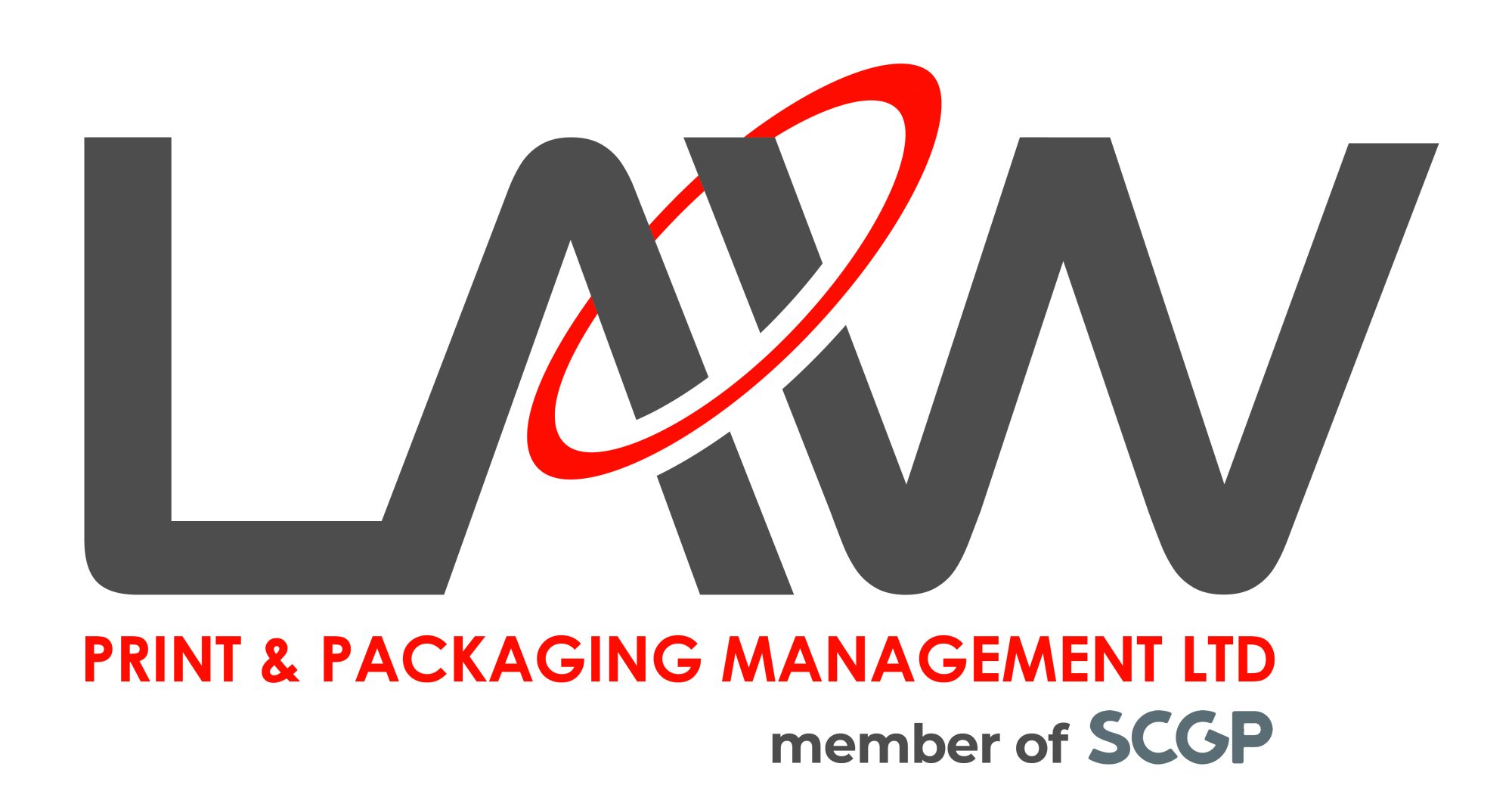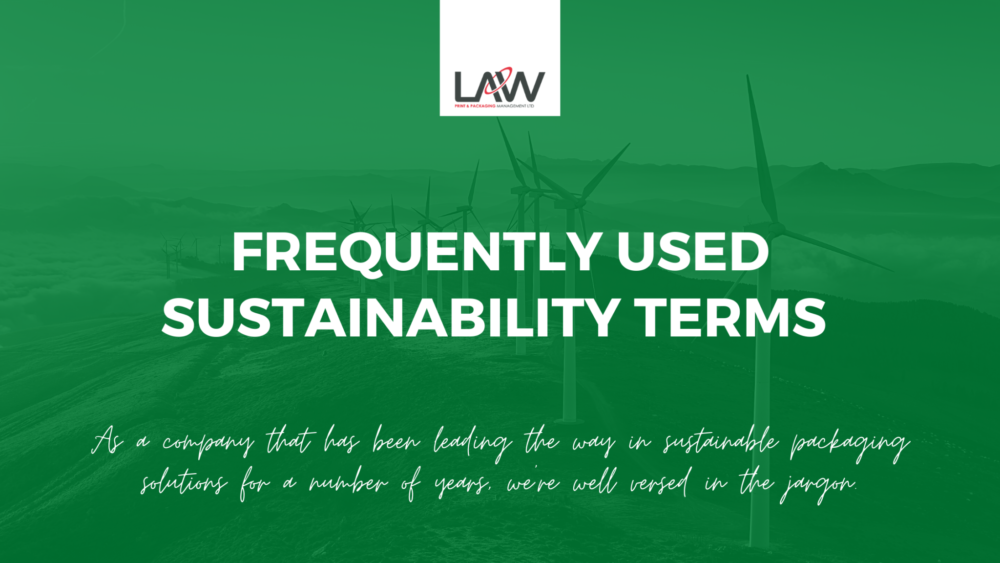We’re well versed in the Glossary of Terms that comes with the territory. As a company that has been leading the way in sustainable packaging solutions for a number of years,
When speaking to our customers and clients, we’re often asked to explain what some terms mean. We thought we’d note down some of these so that we can put together this simple guide for customers to refer to. If you’d like any clarification on this glossary of terms, please let us know.
Biodegradable
Able to break down and blend back in with the earth, given the right conditions and presence of microorganisms, fungi or bacteria. Ideally, but not always, no toxins are left behind.
Bio-plastics
Biodegradable bioplastics are designed to break down along with food waste but only under high-temperature industrial composting conditions.
Carbon credit
A generic term for any tradable certificate or permit deemed to allow a company, within an emissions trading scheme, to emit one tonne of CO2 equivalent. This covers CO2 or any of the other greenhouse gases.
Carbon emissions
A term often used in place of greenhouse gas emissions (see below).
Carbon footprint
Total emissions of greenhouse gases (in carbon equivalent) for an activity or organisation over a given period of time.
Carbon neutral
Balancing greenhouse gas emissions with an equivalent amount of independently verified carbon offsets. Also referred to as net zero greenhouse gas emissions.
Carbon offsetting
Any activity deemed to reduce overall emissions of greenhouse gases by purchasing verified carbon credits (also known as offsets) through emissions reduction projects or carbon trading schemes.
Carbon positive
Any activity deemed to reduce and/or offset more emissions than it produces.
Circular economy
An economy where waste and pollution are designed out, products and materials are kept in use and natural systems are regenerated.
Climate action
Activities to tackle climate change and its impacts, usually by reducing greenhouse gas emissions.
Climate change
A long-term shift in global weather patterns or average temperatures. Scientific research shows that, compared with climate change patterns throughout Earth’s history, the rate of temperature rise since the Industrial Revolution is extremely high. Rising temperatures can lead to extreme weather such as droughts, sea level rises and retreating glaciers.
Collective Impact
Cross-sector coordination to bring about large-scale change.
Compostable
Given the right conditions, a material that breaks down completely into non-toxic components that can support plant growth.
Conscious capitalism
A form of capitalism that seeks to benefit people and the environment.
Corporate Social Responsibility (CSR)
A management concept whereby companies integrate social and environmental concerns in their business operations.
Environmental management systems
A set of processes and practices that enable an organisation to reduce its environmental impacts. The most commonly used framework is the one developed by the International Organization for Standardisation (ISO) for the ISO 14001 standard.
Ethical investment
The avoidance of investment in activities considered unethical and unsustainable, in favour of those that are either considered less harmful, benign or socially and environmentally positive.
Fair trade
An alternative approach to conventional trade, based on a partnership between producers and consumers, to ensure that farmers and workers get a fair share of the benefits of trade.
Global warming
An increase in the world’s average temperature due to human activities, such as burning fossil fuels, that release greenhouse gases into the atmosphere.
Greenhouse gases
Gases that trap heat in the atmosphere including carbon dioxide, methane, nitrous oxide and water vapour.
Greenwashing
Activities, usually marketing, intended to make people believe a company is doing more for sustainability and to protect the environment than it really is.
Life cycle assessment (LCA)
The process of attempting to measure the environmental impacts of a product or service throughout its existence.
Microplastics
Small pieces of plastic, less than 5mm in length, found on land and water as a result of plastic pollution.
Nature-based solutions
Solutions that are inspired and supported by nature and that may also offer environmental, economic and social benefits, while increasing resilience.
Natural capital
The world’s stock of natural ‘assets’, including geology, soil, air, water and all living things.
Paris Agreement
A legally binding international treaty on climate change adopted by more than 190 countries in 2015. Its goal is to limit global warming to well below 2°, preferably to 1.5° Celsius, compared to pre-industrial levels.
Looking for plastic packaging and recycling glossary of terms? Click here.
Plant-based Packaging
Bags with a type of plastic made from renewable and sustainable biological sources, as opposed to traditional plastics, which are made from fossil fuels. The bio-bases can run from vegetable oils to corn starches to food crops.
Product stewardship
A concept where businesses take responsibility for the environmental impact of the products they make, sell or buy. This involves all stages of the product’s life cycle, including end-of-life management.
Recycling
Processing materials that would otherwise be thrown away and turning them into reusable material. In closed loop recycling materials from a product are recycled to make the same, or a similar, product without significant degradation or waste. This can be done repeatedly. In open loop recycling materials from a product are used to make a different type of product.
Recyclable
A product or material that can be collected, processed and manufactured into a new product.
Remanufacturing
Rebuilding a product to its original specifications using a combination of reused, repaired and new parts.
Renewable energy
Energy that comes from sustainable natural sources that are constantly replenished like wind, water and sunlight.
Science-based targets
Targets for reducing emissions are considered ‘science-based’ if they are in line with what the latest climate science deems necessary to meet the goals of the Paris Agreement.
Social enterprise
Businesses that operate to tackle social problems, improve communities or the environment. They reinvest their profits back into the business or community.
Supply chain
A network between a company and its suppliers to produce and distribute a specific product to the final buyer.
Sustainability
The million-dollar definition! We believe sustainability is a balance of society, economy and environment for long-term resilience.
Sustainable business
A business that is economically viable, socially responsible and environmentally conscious.
Sustainable design
Designing products, services and the built environment in keeping with principles of sustainability.
Sustainable procurement
Decisions when buying products and services that include social and environmental factors along with price and quality.
Triple bottom line
A phrase first coined by John Elkington in 1994, describing the separate but interdependent financial, social and environmental ‘bottom lines’ of companies.
Value chain
A business model that describes the full range of activities needed to create a product or service.
Waste stream
The complete flow of a specific type of waste from domestic or industrial areas through to recovery, recycling or disposal.
Zero carbon
A term sometimes used to describe a product or service that creates no CO2 or greenhouse gas emissions during production and/or operation.
Zero waste
A target of sending no waste for disposal via landfill or burning.
We hope this glossary of terms is helpful! Please get in touch if you’d like any clarification or if there’s anything missing.
If your brand wants to invest in quality packaging, or you’d like another glossary of terms relating to packaging, we will guide you through the entire print process. In addition, we are providing recommendations along the way to improve efficiency, reduce costs and add untold value to the end product.
Contact us on +44 (0) 161 440 7302 or follow this link to complete our contact form.





